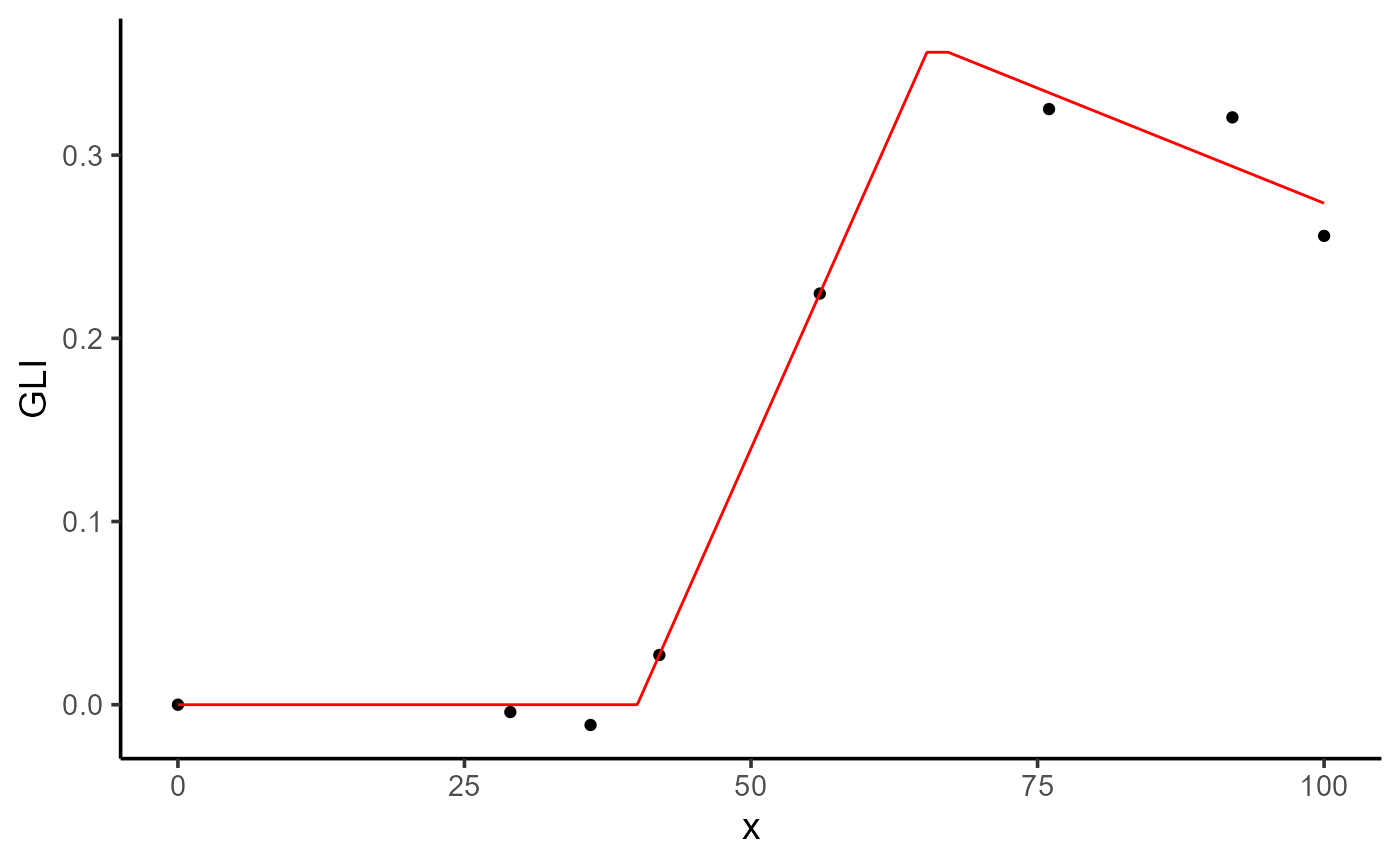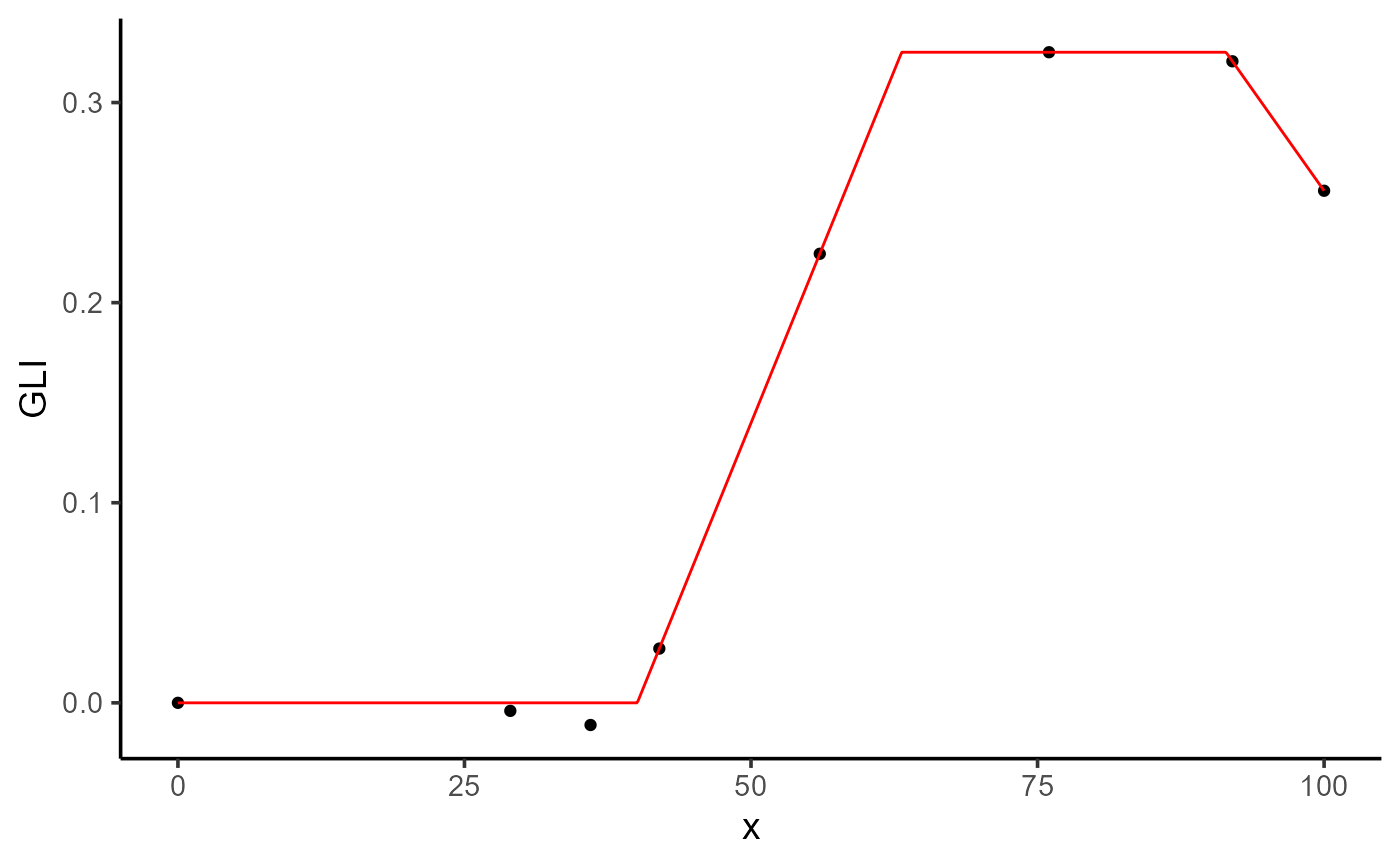It creates a new fitted object using the parameter values from the current model as initial values. It can also be used to perform a few additional iterations of a model that has not converged.
Usage
# S3 method for class 'modeler'
update(object, method = NULL, track = TRUE, eps = 1e-06, ...)Arguments
- object
An object of class
modeler.- method
A character vector specifying optimization methods. Check available methods using
list_methods(). Defaults to the ones inobject.- track
Logical. If
TRUE, the function compares the SSE before and after the update and reports how many groups improved. Useful for evaluating whether the refit led to better convergence.- eps
Numeric. The minimum change in SSE required to consider a fit improved. Defaults to
1e-6. Smaller values may include numerical noise as improvements.- ...
Additional parameters for future functionality.
Value
An object of class modeler, which is a list containing the following elements:
paramData frame containing optimized parameters and related information.
dtData frame with input data, fitted values, and residuals.
metricsMetrics and summary of the models.
executionTotal execution time for the analysis.
responseName of the response variable analyzed.
keepMetadata retained based on the
keepargument.funName of the curve-fitting function used.
parallelList containing parallel execution details (if applicable).
fitList of fitted models for each group.


